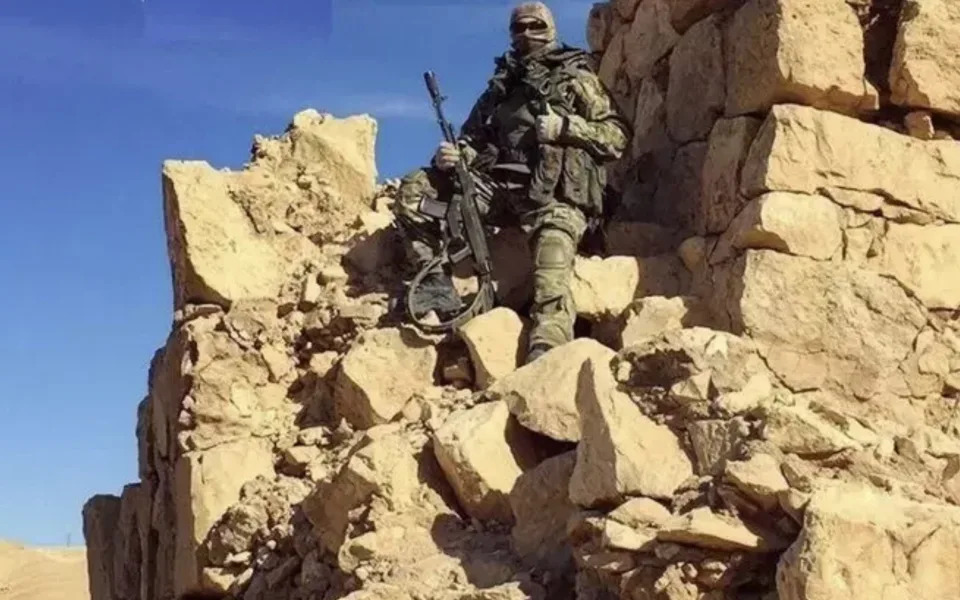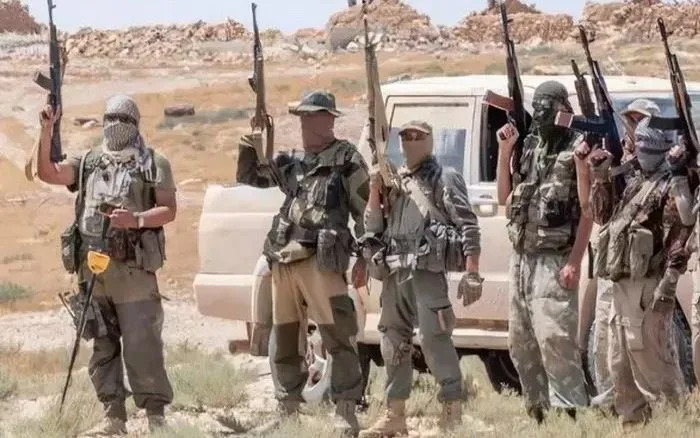In the wake of the July 26 coup in Niger, the world’s spotlight has once again turned to the expansion of private military and security companies (PMSCs) across Africa. Following the removal of the relatively pro-Western government, Niger’s new military rulers asked Russian PMSC Wagnerto help defend against a possible military intervention by the Economic Community of West African States (ECOWAS), with U.S. Secretary of State Antony Blinken warning of the PMSC seeking to exploit the instability.
In a continent marked by decades of post-colonial turmoil, PMSCs have steadily gained influence, evolving from their historical role as mercenaries into powerful, corporate-driven forces. As the Sahel region continues to grapple with instability and conflict, the strengthening of PMSCs, both domestic and foreign, will continue to reshape Africa’s security in profound and unpredictable ways.
Africa’s experience with PMSCs dates back to the decolonization period after World War II. Though mercenaries had been steadily sidelined in conflicts for centuries, rag-tag groups of privateers emerged as shadowy accomplices to colonial powers, aiding in suppressing rebellions and fomenting unrest while providing a degree of ambiguity. Britain’s “Mad Mike” Hoare and France’s Bob Denardcame to exemplify this era through their active involvement in military operations that undermined the sovereignty of African states.
The end of the Cold War ushered in a new chapter for PMSCs. With millions of demobilized soldiers seeking employment and civil conflicts on the rise in the early 1990s, these entities evolved into more corporate forms. The South African PMSC Executive Outcomes (EO), founded in 1989 by Eeben Barlow, gained notoriety by accepting contracts to protect energy infrastructure in Angola and to fight Sierra Leone’s civil war.
Pressure from South Africa’s post-apartheid government led to the disbandment of EO in 1998. But other PMSCs had emerged, including Sandline International, also financed by EO backer Anthony Buckingham and Canadian businessman Rakesh Saxena, that helped gain control over mineral rights in Sierra Leone. And after Washington began to lean heavily on PMSCs during the wars in Afghanistan and Iraq, the taboo of using them was broken.
Existing in a legal gray zone, PMSCs have leveraged their strategic capabilities worldwide—no more so than in Africa. Fragile government institutions, powerful criminal and militant groups,international power struggles, and competition over Africa’s natural resources have nurtured an environment supportive of a growing network of PMSCs. Across the continent, they are used to secure energy facilities, government buildings, and private infrastructure, protect local actors and foreign personnel, and provide police and military training, intelligence, and active fire support to governments and corporate clients.
Through entities like the colossal PMSC Wagner, Russia has found an unconventional and effective way to assert influence in Africa’s security landscape. In the Sahel region, Russian PMSCs have filled a void left by departing French military forces and capitalizing on local anti-French sentimentin recent years.
Amid shifting allegiances, Wagner underscores how Russia’s indirect power projection allows the Kremlin to wield substantial influence without deploying conventional military forces. Wagner’s activities are believed to span across Mali, Sudan, Zimbabwe, Angola, Madagascar, Guinea, Guinea-Bissau, Mozambique, Burkina Faso, Chad, the Central African Republic (CAR), and the Democratic Republic of the Congo (DRC). Other Russian PMSCs, such as RSB Group, Moran Security Group, and Patriot, also operate across Africa.
At the center of Russia’s PMSC network in Africa stands Yevgeny Prigozhin, Wagner’s financier. The Russian tycoon celebrated the success of the coup in Niger and declared Wagner capable of handling the situation, though the Russian government declined to support it. Despite Prigozhin’s longstanding quarrels with the Russian military, which culminated in his insurrectionist march toward Moscow in June, Prigozhin was recently seen meeting with African dignitaries on the side of the Russia-Africa summit in St Petersburg.
As the Nigerien government grapples with its situation, Wagner could again act as a Kremlin surrogate, safeguarding Russia’s interests by filling the security vacuum left by the ousted French military. Already, there are fears that Niger may halt uranium exports, vital to both French and EU supplies, and forcing the West’s attention to the country. Russian media has criticized Prigozhinsince his rebellion and officials have downplayed state connections to Wagner’s activities in Africa. But Prigozhin’s ongoing role in Africa suggests the Kremlin is relying on smoke and mirrors to obscure its true motivations.
Beyond Russia, numerous Western PMSCs have embedded themselves within Africa’s security. Unlike Russia’s PMSCs, most do not operate on the frontlines of conflict and primarily operate in security and training roles, though do coordinate with official military deployments. French PMSC Secopex made headlines in 2011 when its founder was killed in Libya during the country’s revolution, and it remains unclear as to what the PMSC’s role was.
Secopex had also been involved in the CAR and Somalia, while Corpguard (also created by the co-founder of Secopex, David Hornus) has been involved in training the Cote D’Ivoire’s military.
Other French PMSCs, such as Agemira, are active in the Democratic Republic of Congo (DRC). Though French-owned, Agemira is registered in Bulgaria to take advantage of the country’s lack of regulation and transparency. The UK’s Aegis Defence Services is believed to have worked in 18 African countries, while G4S, Erinys, and Olive Group are also active in Africa.
U.S. PMSCs have been active across the continent since the 2000s, with MPRI, CACI International, and Academi (previously the notorious Blackwater) among the most notable. Others, such as DynCorp, have provided training and logistical support to Liberia, Sudan, and Somalia, while Triple Canopy has been active in Niger. AdvanFort Co in turn offers anti-piracy maritime protection in East and West Africa. Germany’s Xeless and Asgaard are also active in Africa, with the latter having operations in Sudan, Libya, Mauritania, and Egypt.
PMSCs have increasingly begun to operate in the same conflict zones. Somalia, which lacked a functional state for more than two decades, provided fertile ground for PMSC expansion. PMSCs from the U.S., UK, China, UAE, and even Norway have helped Somalia train its official government forces and provide maritime protection from piracy and terrorism and ensure stability. But in Libya, PMSCs from or backed by Russia, France, the UK, the U.S., Turkey, the United Arab Emirates(UAE), and more have all been sent to the country since 2011 to exploit the chaos and advance their interests.
Active in Libya, Turkey’s SADAT group has also signed deals to train African troops while pitching itself as a Muslim alternative PMSC for Islamic-majority countries. The UAE-based Black Shield Security Company was accused in 2020 of promising Sudanese citizens security contractor jobs but instead sent them to conflict zones in Libya. Other UAE PMSCs have been active in East Africa, including in Somalia, while China has developed a multitude of PMSCs to secure its Belt and Road projects in Africa. Israeli PMSCs have their own African operations.
In 2014, the Nigerian government began hiring PMSCs to help defeat the Boko Haram insurgency. One of them, Specialized Task, Training, Equipment, and Protection (STTEP), was also set by EO’s Barlow and saw significant success that helped grant it additional contracts. Other modern South African PMSCs include Osprey, Blackhawk, and Dyck Advisory Group, the latter of which was hired by Mozambique to combat Al-Shabaab militants but was accused of killing civilians indiscriminately by the UN in 2020.
The use of PMSCs in Africa is likely to expand. They often offer African governments a quick, relatively inexpensive, and tailored way to manage crises instead of relying on ineffective state forces. PMSCs also enable international companies to protect themselves without relying on the fanfare of official military deployments by working with another corporate entity.
Nonetheless, this raises questions about sovereignty, a recurring issue in a continent where it has consistently been violated since African countries won their independence. The monopoly on the use of violent force by their police and military institutions has been steadily eroded by criminals, militants, foreign countries, and increasingly, PMSCs.
The dangers of commodifying security are evident. Foreign companies and powerful local actors can afford security, while the core issues of instability in countries or regions are not addressed. Furthermore, instability is often used by outside forces to their advantage. Many Africans also end up working for PMSCs outside the continent because they are cheaper than recruits from other parts of the world.
Furthermore, PMSCs, and the governments and companies that employ them, remain largely uncommitted to stronger regulation. The Montreux Document aimed to enforce greater rules for PMSCs, but has been criticized for its limited scope and lack of binding nature. Other countries, including the five members of the UN Security Council, have refused to ratify the UN International Convention Against the Recruitment, Use, Financing, and Training of Mercenaries.
Criticism of PMSCs in Africa is growing. In February 2023, the African Union (AU) commissioner for political affairs, peace, and security, Bankole Adeoye, called for the “complete exclusion of mercenaries from the African continent.” But U.S. PMSC Bancroft Global had already been hired by the AU to assess the risk of Somali forces trained by Blackwater founder Erik Prince to continue operating in the country.
These entities epitomize globalization. Aegis Defence Services was acquired by Canadian company GardaWorld in 2015, while DynCorp was bought by Amentum in 2020. Academi and Triple Canopy merged in 2014 to form Constellis Group, while Triple Canopy has outsourced work to Peru-based PMSC Defion International. Erik Prince, through the Hong Kong-based Frontier Services Group, has helped China train its own PMSCs for use in Africa and elsewhere. G4S was meanwhile bought by Allied Universal in 2021 and is now North America’s third-largest private employer. Allied Universal itself is owned by institutional investor Caisse de dépôt et placement du Québec and private equity firm Warburg Pincus.
Many PMSCs provide legitimate and needed security for civilians and government officials. But considering the wide-ranging motivations, means, and methods of so many PMSCs on the continent—and increasingly in the same spaces—it is critical for Africa’s governments, leaders, and populations to consider how comfortable they are in allowing this rapidly developing global PMSC network to continue expanding in their own backyards.
This article was produced by Globetrotter.











 The Wagner group has spearheaded the months-long Russian assault on Bakhmut – Copyright Venezuelan Presidency/AFP Handout
The Wagner group has spearheaded the months-long Russian assault on Bakhmut – Copyright Venezuelan Presidency/AFP Handout
